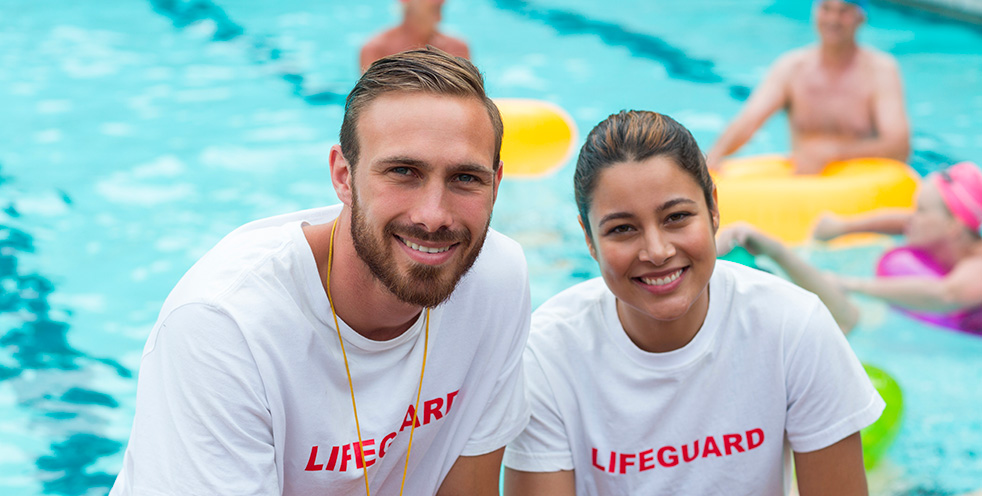Introduction to Lifeguard Courses
Lifeguarding isn’t just a job; it’s a responsibility that demands a unique set of skills and unwavering commitment. Whether you’re a novice or seeking to refine your abilities, enhancing your lifeguarding prowess is crucial. This comprehensive guide explores the avenues to improve your performance in a lifeguard course near you.
Importance of Lifeguard Training
Understanding the significance of lifeguard training sets the stage for a fulfilling journey. It’s not merely about patrolling pools or beaches; it’s about being equipped to save lives.
Factors to Consider for Lifeguard Training
Before enrolling, consider critical factors such as course duration, syllabus comprehensiveness, and instructor expertise. These elements significantly impact the quality of your training.
Benefits of Being a Certified Lifeguard
Earning certification not only validates your skills but also opens doors to diverse employment opportunities. It’s a testament to your commitment to safety and preparedness.
Finding the Right Lifeguard Course Near You
Identifying the ideal Lifeguard course near me involves diligent research and assessment. Begin by exploring local training programs and their offerings.
Researching Local Training Programs
Take the time to delve into the available options in your vicinity. Analyze their reputation, reviews, and track record to ensure credibility.
Evaluating Course Curriculum
A robust curriculum covers various aspects, including water safety protocols, emergency response tactics, and health guidelines. Assess the comprehensiveness of the course.
Assessing Certification Validity and Accreditation
Valid certifications from recognized organizations hold immense value in the lifeguarding realm. Verify the accreditation of the course to ensure its legitimacy.
Steps to Improve in a Lifeguard Course
Mastering the essentials of lifeguarding involves a multifaceted approach, starting with foundational skills.
Understanding Water Safety Techniques
Comprehensive knowledge of water safety, rescue strategies, and hazard identification forms the cornerstone of effective lifeguarding.
Mastering First Aid and CPR Skills
Quick and accurate responses in emergencies rely on honed first aid and CPR skills. Proficiency in these areas is non-negotiable for lifeguards.
Practicing Rescue and Emergency Response Scenarios
Regular drills and simulated scenarios refine your ability to handle critical situations with composure and precision.
Enhancing Physical and Mental Preparedness
Lifeguarding demands robust physical fitness and unwavering mental resilience.
Importance of Fitness in Lifeguarding
Physical fitness isn’t just advantageous; it’s a necessity. A fit body ensures swiftness and agility in rescue operations.
Mental Agility and Focus in Emergency Situations
Maintaining a clear mind amidst the chaos is pivotal. Lifeguards need to stay focused and make split-second decisions.
Stress Management and Coping Strategies for Lifeguards
The job can be demanding; hence, adopting stress management techniques ensures sustained performance.
Real-Life Scenarios and Applications
Translating theoretical knowledge into practical expertise is pivotal for a proficient lifeguard.
Simulated Training Exercises
Engage in simulated exercises that mimic real-life scenarios, allowing you to apply learned skills effectively.
On-the-job experience and Shadowing
Shadow experienced lifeguards to gain insights and practical wisdom that textbooks can’t offer.
Learning from Experienced Lifeguards
Experienced mentors provide invaluable guidance, offering tips and tricks from their wealth of experience.
Skills and Requirements
To embark on the lifeguarding journey, individuals need a blend of physical fitness, strong swimming capabilities, excellent communication skills, and a calm demeanor under pressure. Being a lifeguard demands quick thinking and the ability to act decisively in critical situations.
Course Curriculum
Lifeguard courses encompass a comprehensive syllabus covering CPR and First Aid training, rescue strategies, risk assessment, and legal aspects concerning duties and liabilities. Participants learn to navigate various scenarios, from minor injuries to water-based emergencies.
Also Read About: Explore Our Collection of Tote Bags for Women
Conclusion
Becoming an exceptional lifeguard involves dedication, continuous learning, and a passion for safeguarding lives. With the right training and commitment, you can excel in this noble profession.

